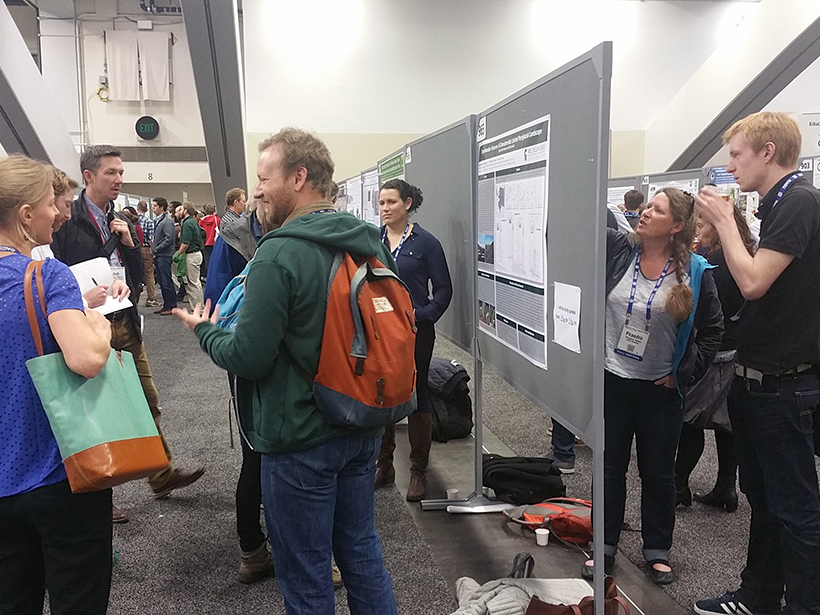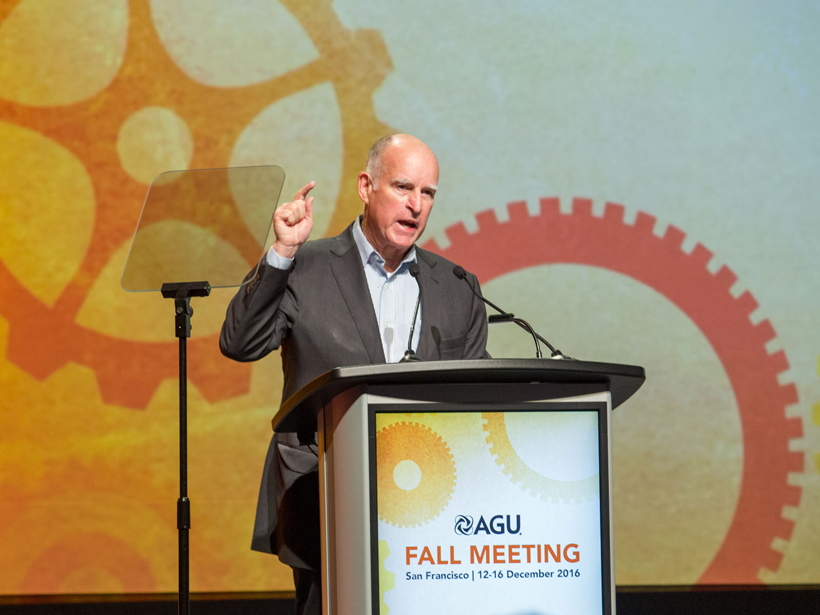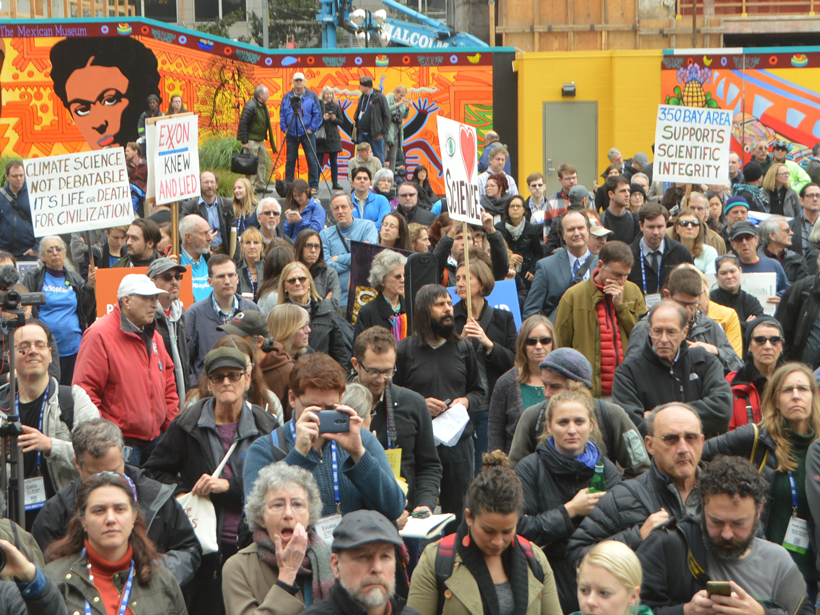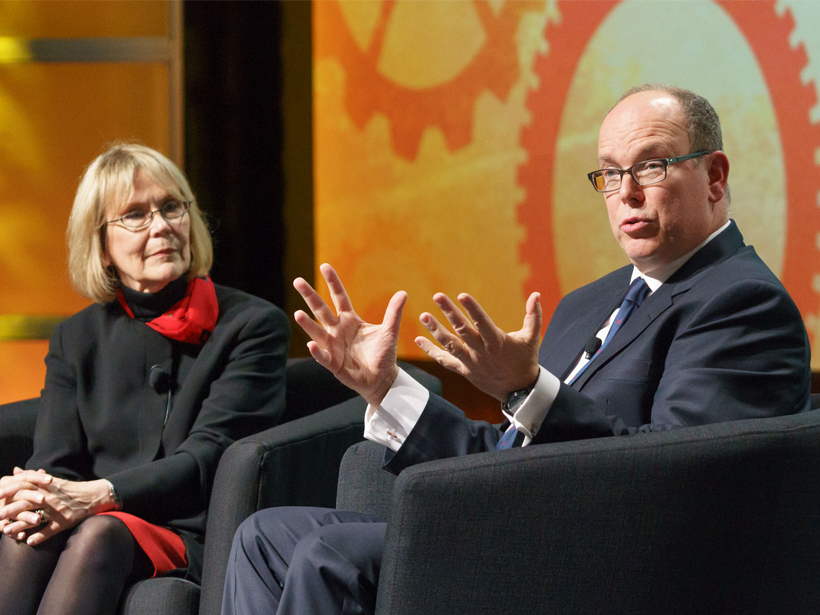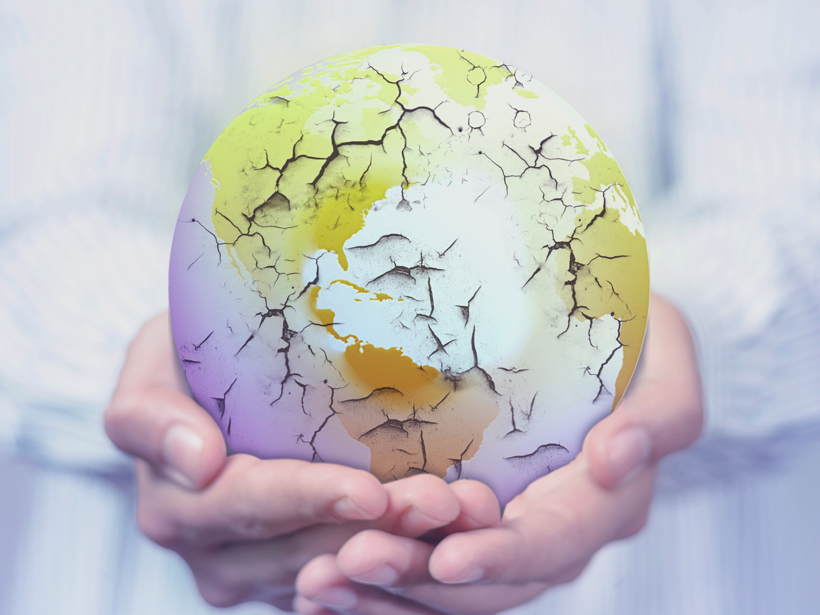In the journal's Policy Forum, the president lays out why renewable energy investments will surge in the future regardless of political headwinds.
science policy
White House Issues Ambitious Arctic Research Plan
The plan focuses on improving the well-being of Arctic residents and better understanding the components of the Arctic system.
Scientists Ponder the Way Forward Under Incoming Administration
Eos asked several attendees of the American Geophysical Union's Fall Meeting for reactions to the U.S. national election. Here are their thoughts.
California’s Governor Promises to Fight for Science
Scientific efforts must ratchet up in the face of rising climate change denial, Governor Brown said to a roomful of scientists.
Fearful of Trump, Hundreds in San Francisco Rally for Science
Speakers called on scientists not to remain silent in the face of what they said are threats to the Earth sciences.
Monaco Leader Urges Climate Action, Calls on Trump to Help
HSH Prince Albert II cautioned that the world has to come to terms with the fact that we are facing severe challenges if we don’t move toward a low-carbon global economy.
Obama Science Adviser Warns Against Retreats on Climate, Science
Holdren sees pitfalls for U.S. global leadership in withdrawing from climate accord and says that moving Earth observations out of NASA "is a terrible idea."
Climate Efforts Will Continue Despite Rhetoric, Officials Say
Secretary of the Interior says that citizens can help hold the Trump administration accountable for what they want to see happen in terms of action on climate change.
Take the Long View on Environmental Issues in the Age of Trump
Although climate and environmental regulations are at risk in the short term, Trump's disruption of traditional party positions could help to break decades of stalled efforts to address climate change.
EPA Head Calls Climate Change Biggest Threat to U.S. Progress
McCarthy says that despite anxiety at the agency about the election results, she is confident in EPA’s work and that efforts to control climate change will continue.



